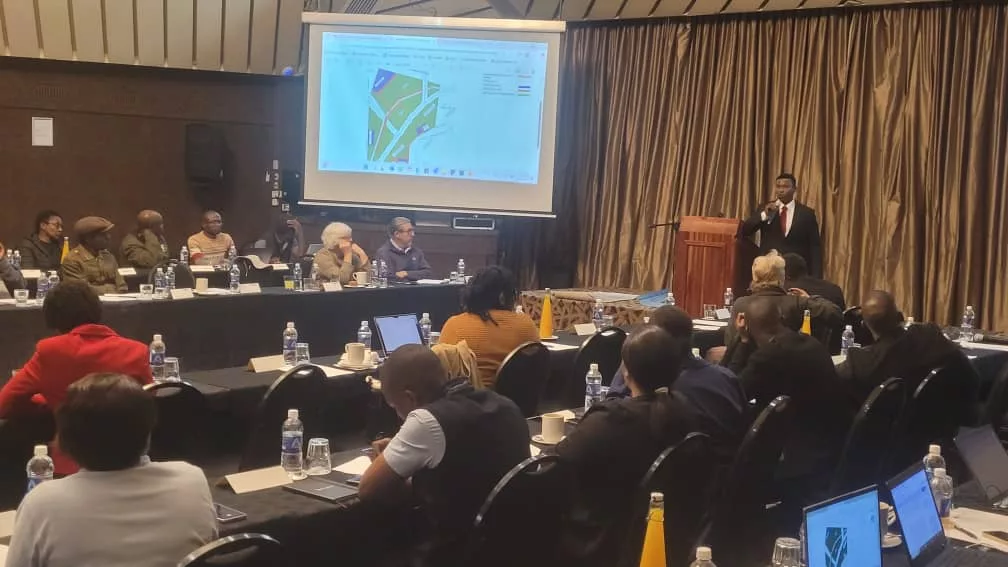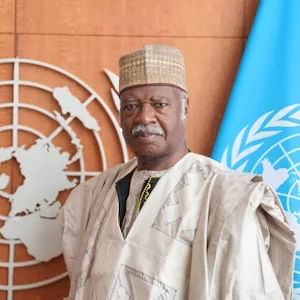|
Getting your Trinity Audio player ready...
|
The Southern African Development Community (SADC) has noted with profound concern the imposition by the United States of America announced on 2 April 2025 of new tariffs on imported products, including those from SADC Member States. A new baseline tariff of 10% on all imports will take effect from 5 April 2025, while “reciprocal” tariffs will enter into force on 9 April 2025
The new tariffs will affect all SADC Member States to varying degrees. For example, products from Lesotho will be hit by a 50% “reciprocal” tariff, while 47% will be applied to imports from Madagascar. While the US has announced a list of exempted products, this does not include products such as textiles and clothing, which are amongst those exported to the US by SADC countries. The full list of reciprocal tariffs by the US are as follows:
| SADC Member State | % | SADC Member State | % |
| Lesotho | 50 | Malawi | 18* |
| Madagascar | 47 | Zambia | 17 |
| Mauritius | 40 | Mozambique | 16 |
| Botswana | 38* | DRC | 11 |
| Angola | 32 | Comoros | 10 |
| South Africa | 31* | Eswatini | 10 |
| Namibia | 21 | United Republic of Tanzania | 10 |
| Zimbabwe | 18 | Seychelles | Exempt |
Source: White House (accessed at Annex-I.pdf)
Note: * indicates adjusted rate compared to rates originally announced
These reciprocal tariffs are additional to existing tariff rates. While SADC Member States, except for Seychelles and Zimbabwe, currently enjoy duty-free access to the US market under the US’s African Growth and Opportunity Act (AGOA), the reciprocal tariffs will nullify these benefits of AGOA. The current term of AGOA was due to expire by the end of September 2025.
In response to these developments, SADC is carrying out a detailed assessment of the impact of the global geopolitical developments on the different sectors of the Region, for consideration by an extraordinary meeting of the SADC Council of Ministers to be held in June 2025.
In addition, the SADC Secretariat will be carrying out a detailed assessment of the impact of the US measures on trade with the Region, for review by Ministers in forthcoming meetings of the Committee of Ministers of Trade (CMT) and the Ministerial Task Force on Regional Integration (MTF) in June 2025, which will recommend to the Council of Ministers meeting in August 2025 for decisions to be taken as a collective response by SADC Member States.
SADC reiterates its commitment to further the objectives of the SADC Treaty through continued adherence to multilateral trade rules and fair competition administered by the World Trade Organization (WTO) and remains open to engagement with stakeholders on these matters.
Commenting about the move, the Labour Economists and Afrikan Democrats (LEAD) President, Linda Masarira, said the removal of tariffs on US goods, without reciprocal benefits, exposes Zimbabwean industries to unfair competition and further deepens trade imbalances.
“While the intention might be to position Zimbabwe as an open and willing partner for trade, the reality is that the United States is pursuing a protectionist strategy under the guise of negotiation. Without any guarantees for market access, investment incentives, or technical cooperation, Zimbabwe risks becoming a dumping ground for American products while its own producers suffer under export barriers,” Masarira said.
From a Pan-African perspective, Masarira said Zimbabwe and the region must:
• reinforce regional trade alliances. We call for the strengthening of intra-Afrikan trade through full implementation of the African Continental Free Trade Area (AfCFTA). Prioritizing regional value chains, joint industrial policies, and collective bargaining power will insulate us from exploitative global trade dynamics.
• pursue reciprocal trade policies. Zimbabwe should reintroduce tariffs on US imports unless mutual trade benefits are secured. Trade agreements must be reciprocal, equitable, and rooted in national and regional interests.
• leverage SADC and AU platforms. Engage through SADC and the African Union to push for a common Afrikan stance on global trade disputes. Africa must speak with one voice to assert its interests in global trade forums like the WTO.
• develop local industries. Instead of relying on imports, the focus must shift to industrialization, value addition of natural resources, and support for small-to-medium enterprises. Protection of infant industries is key to achieving sustainable economic development.
• Pursue South-South cooperation. Strengthen trade and diplomatic ties with BRICS and other emerging economies. Partnerships should be guided by mutual respect, shared development goals, and non-interference.






